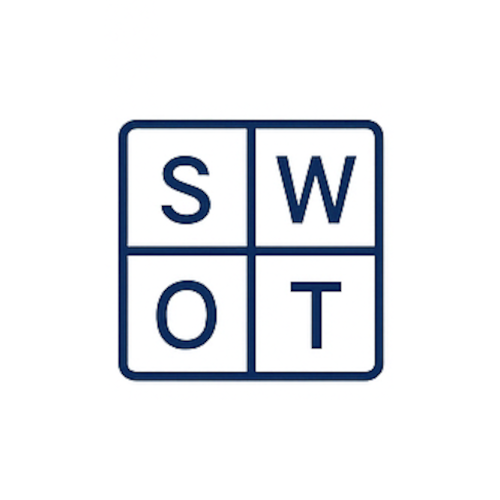INDUSTRY OVERVIEW – 2024
As we step into 2024, the global start-up and scale-up ecosystem continues to evolve, offering both exciting opportunities and significant challenges. This comprehensive overview explores the current state of the industry, drawing on key statistics, emerging trends, challenges, and positive developments shaping the business environment.
Key Statistics
Start-up Creation
The start-up ecosystem remains robust, with substantial activity across various industries. In 2023, approximately 250,000 to 300,000 new start-ups were launched worldwide. This surge reflects a dynamic and vibrant sector with new ventures spanning technology, healthcare, finance, and other fields. Established hubs like Silicon Valley, along with emerging markets in Asia and growing ecosystems in Europe and Latin America, have seen notable activity. These figures underscore a persistent entrepreneurial spirit and a steady influx of innovative ideas.
Scale-up Growth
Transitioning from start-up to scale-up is a significant milestone. In 2023, around 40,000 to 50,000 start-ups made this leap. These scale-ups demonstrated impressive growth, with revenue increases ranging from 50% to 100% and workforce expansions of 20% to 30%. Sectors like technology, healthcare, and finance have been particularly prominent, reflecting the increasing maturity and market acceptance of these businesses. This growth highlights the successful evolution of start-ups into more established entities with considerable market influence.
Emerging Trends
Tech Dominance
Technology continues to drive innovation and shape the future of businesses globally. The ongoing advancements in artificial intelligence, blockchain, and the Internet of Things are redefining operational models and business strategies. Start-ups and scale-ups are leveraging these technologies to create new solutions and enhance efficiency. As technology becomes more embedded in everyday business processes, its role as a catalyst for change remains paramount.
Remote Work Dynamics
The shift towards remote work has revolutionized talent acquisition and team collaboration. Geographical barriers have diminished, allowing for the formation of global teams and cross-border partnerships. This transformation has expanded the talent pool, enabling start-ups and scale-ups to tap into diverse skill sets from around the world. Remote work has also necessitated the development of new collaboration tools and practices, further influencing how businesses operate and succeed.
Challenges and Risks
Funding Hurdles
Despite a general increase in venture capital funding, early-stage start-ups often encounter difficulties securing financial support. Navigating through capital raise rounds requires a strategic approach, including crafting compelling pitches, understanding investor expectations, and demonstrating potential for high returns. Addressing these hurdles effectively is crucial for sustaining growth.
Market Saturation
Industries with low entry barriers are experiencing market saturation, making differentiation essential. Start-ups must develop unique value propositions and innovative strategies to stand out in crowded markets. This often involves finding niche segments, enhancing product features, or offering exceptional customer service to capture and retain market share.
Regulatory Complexities
Expanding internationally introduces challenges related to varying regulatory frameworks. Dealing with these complexities demands careful planning and legal expertise to ensure compliance. Start-ups must be aware of different regulations across regions and adapt their strategies accordingly to avoid legal battles and streamline operations.
Talent Management
Competing with larger corporations for skilled talent remains a significant challenge. Start-ups need to implement effective talent management strategies to attract and retain top-tier individuals. This includes offering competitive compensation, fostering a positive work culture, and providing growth opportunities to differentiate themselves as employers of choice.
Positive Developments
Innovation Hubs
Global innovation hubs are enhancing collaboration and knowledge-sharing within the entrepreneurial ecosystem. These hubs, located in various regions, facilitate creativity and cross-disciplinary interaction. They provide resources, mentorship, and networking opportunities that benefit start-ups and scale-ups. By fostering an environment conducive to innovation, these hubs play a crucial role in driving industry advancement.
Government Initiatives
Governments worldwide are actively supporting entrepreneurship through various programs, grants, and policies. These initiatives aim to reduce barriers to entry, provide financial support, and foster a favorable environment for innovation. Government backing is instrumental in helping start-ups and scale-ups navigate early-stage challenges and achieve growth.
Opportunities
Agile Business Models
Successful start-ups and scale-ups demonstrate agility by adapting their business models in response to market changes. This flexibility is vital for thriving in a rapidly evolving business environment. By remaining responsive and open to pivoting, businesses can better address emerging trends and capitalize on new opportunities.
Strategic Collaborations
Forming strategic alliances and partnerships can significantly benefit start-ups and scale-ups. Collaborations provide access to complementary resources, expertise, and markets. Through strategic partnerships, businesses can address challenges more effectively, drive innovation, and accelerate their growth.
Data-Driven Decision-Making
Utilizing data analytics is essential for making informed decisions and maintaining a competitive edge. By deriving actionable insights from data, businesses can optimize operations, enhance customer experiences, and identify new growth opportunities. Data-driven decision-making helps businesses stay ahead in a dynamic landscape by leveraging evidence-based strategies.
Conclusion
Entering 2024, the start-up and scale-up scene presents a rich mix of innovation and challenges. Effective business strategy management is crucial for thriving in this dynamic landscape. Start-ups and scale-ups must deal with funding hurdles, market saturation, regulatory complexities, and talent management while leveraging emerging trends and opportunities.
Introducing SengiSolutions
To address these complexities and capitalize on growth opportunities, SengiSolutions offers a robust platform designed to streamline strategy planning and execution. Our platform assist businesses in crafting vision and mission statements, defining strategic pillars, setting goals, and managing objectives. By providing clarity and alignment, SengiSolutions helps organizations tackle market saturation, regulatory challenges, and talent management issues.
Explore how SengiSolutions can support your business journey in 2024 by visiting https://www.sengisolutions.com.












